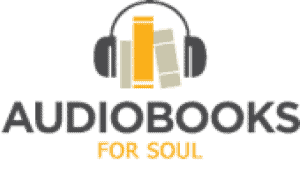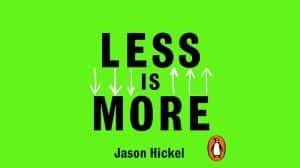Less Is More Audiobook: Echoes of a World Reimagined Through Degrowth
In the quiet hours of a rainy Sunday afternoon, nestled in my favorite armchair by the window, I embarked on an auditory expedition with Jason Hickel’s Less Is More Audiobook. The gentle pitter-patter of raindrops against the glass provided a fitting backdrop to contemplate Hickel’s revolutionary concept of ‘Degrowth.’ With each chapter, narrators Ben Crystal and Clifford Samuel traded passages like seasoned orators at a symposium, their voices a testament to the gravity and urgency of Hickel’s message.
The audiobook opened my eyes to an uncomfortable truth: humanity’s relentless pursuit of economic growth has been both our triumph and our tragedy. Hickel’s narrative isn’t merely an account of historical facts; it is a profound critique of our modern civilization – a civilization that prides itself on technological advancements yet remains blind to the environmental cataclysm it engineers. As I listened, I couldn’t help but feel complicit in this unsustainable march toward ecological oblivion.
Hickel argues for a radical shift from growth to ‘Degrowth,’ positing that true progress lies not in the accumulation of wealth but in sustainable living and harmony with nature. His ideas resonated with me as I recalled walks through once-verdant forests now scarred by industry. The audiobook challenged my understanding of success and pushed me to consider what legacy we leave for future generations.
The dual narration added depth to this exploration. Ben Crystal’s crisp British accent conveyed authority while Clifford Samuel brought warmth and empathy, making the complex subject matter accessible. Their seamless interplay underscored the duality within Hickel’s argument – the intellectual rigor needed to understand our predicament, paired with the emotional resonance necessary to inspire change.
Less Is More wasn’t just an audiobook; it was an immersive experience that beckoned me towards introspection. It stirred feelings ranging from guilt over my own carbon footprint to hope for a renewed societal paradigm – one where human well-being is measured not by GDP but by ecological balance and community resilience.
As I absorbed Hickel’s words through Crystal and Samuel’s compelling delivery, I found myself sketching out plans for reducing waste in my daily life. The audiobook became more than mere theory; it morphed into actionable insights – a blueprint for personal contribution to a global solution.
For those eager to listen, let me share that this enriching audiobook experience is available for free download from Audiobooks4soul.com – an opportunity not just to consume content but also participate in an intellectual movement towards sustainability.
Upon reaching its conclusion, Less Is More left me contemplative yet galvanized. This wasn’t just another treatise on environmentalism; it was a clarion call for systemic transformation – one that demands both individual action and collective resolve.
Hickel acknowledges that his vision might seem unattainable given current societal structures deeply rooted in consumption-driven ideologies. Yet, he also reminds us that change often begins as inconceivable until it becomes inevitable through collective willpower.
In reflection, Less Is More stands out among other works exploring similar themes due to its unflinching examination of our cultural ethos. It doesn’t shy away from posing difficult questions about what we value as progress or whether we can truly embrace such radical changes without sacrificing aspects of modern comfort we’ve grown accustomed to.
Eagerly awaiting our next narrative adventure into realms where thought meets action – where words spur us towards shaping better tomorrows – I sign off with anticipation for what lies ahead on our literary horizons.
Happy listening,
Stephen











